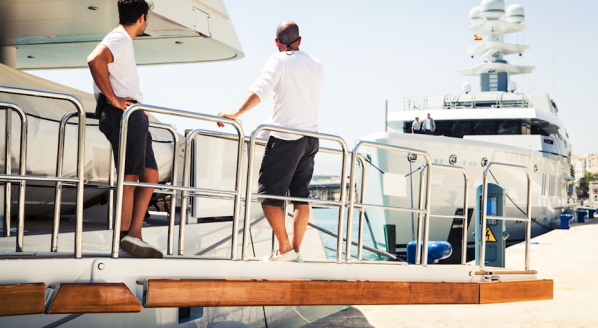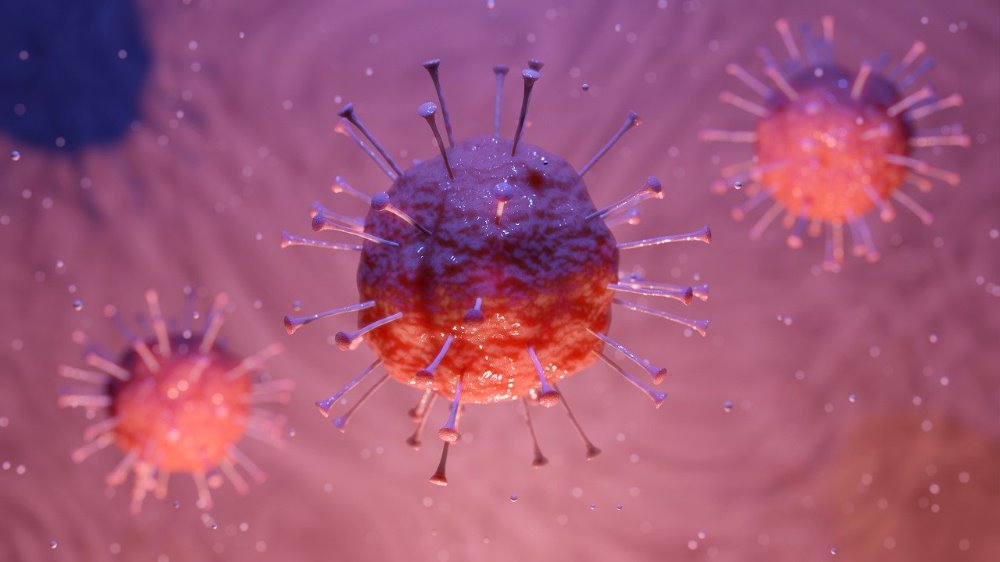SuperyachtNews COVID-19 Advisory – testing for superyachts
Dr. Spike Briggs of Medical Support Offshore discusses the considerations of COVID-19 testing for superyachts…
While governments consider the best way to start easing countries back to normality, widespread testing for COVID-19 is being hailed as the most effective approach for allowing populations out of lockdown. It is also likely that testing will play a key part in unlocking the superyacht fleet, as it will enable crew and guests to confirm that a vessel and its crew are safe and minimise the risk of bringing infections on board. Various yacht agents and medical support companies have already started advertising testing to the industry.
SuperyachtNews spoke to Dr. Spike Briggs, managing director of Medical Support Offshore Ltd., about testing in the industry, and whether it would be likely for crew and guests to get tested efficiently. Before reading the following, it is important to note that the insight offered by Dr. Briggs is relevant at the time of writing, but the facts will certainly change over time, as resources and knowledge increases.
Firstly, Dr. Briggs foresees that there will be a significant demand in the superyacht industry for COVID-19 testing. “We are seeing some companies already supplying the antibody test,” he advises. “Most vessels have frequent crew and guest changeovers, involving lots of travelling, which naturally incurs risk of infection. Captains and yacht managers are trying to reduce the risk of introducing COVID-19 on to vessels, and are looking to testing to achieve this.”
“Captains and yacht managers are trying to reduce the risk of introducing COVID-19 on to vessels, and are looking to testing to achieve this.”
But testing for COVID-19 is a complex subject, and should be approached with caution. “There is no completely straightforward answer as to whether a test will give a true positive or true negative result,” explains Dr. Briggs. “But, as a starting point, no test is completely 100 per cent accurate, taking into account errors of the testing process itself, errors when taking samples and inevitable reporting errors. And, of course, every single person has a different immunological response to infections, which fundamentally affect testing accuracy.”
In terms of COVID-19 testing, there are two main types: the PCR test, used to detect the presence of the virus, and the antibody test (Immunoglobulin - usually IgG), used to test for immunity to the virus. Both tests will be useful for the superyacht industry to test crew and guests, but both tests have different characteristics that need to be considered carefully before use.
The laboratory-based PCR test is done through nasal and throat swabs with an accuracy rate of 70 to 80 per cent. It is based on viral load, so a positive result can show reasonably quickly, within about ten days after initial infection, but the result may also be falsely negative if the test is done too early. “If the PCR test is positive, it is likely that the person is infectious and so the necessary precautions should be taken,” explains Dr. Briggs. “If the test is negative, there is a reasonable chance the person is not infectious, but a small chance they are infectious. If they have been quarantined for fourteen days or so, and remain free of symptoms, there is a reasonable case for them to continue normal activities.”
The antibody test is a rapid test with variable results. It becomes more reliable after a couple of weeks or more after the onset of symptoms. Dr. Briggs also notes that some labs are claiming great accuracy, which may or may not be the case. “If the antibody (IgG) test is positive, this shows that the person has antibodies to COVID-19, so has been exposed to the virus previously,” says Dr. Briggs. “There is a reasonable chance that the person is no longer infectious, but a small chance they continue to be infectious. If they have been symptom-free for the past fourteen days, it's reasonable for them to continue normal activities. If the test is negative, the person may have COVID-19, but no antibodies yet. Again, if they have been symptom-free for the previous fourteen days, it's probably reasonable they continue with normal activities.”
“A certain way of reducing the risk of bringing infection on board is to reduce crew turnover, and limit contact on and off the vessel – easy to say but difficult to put into action.”
Furthermore, the UK government and the Worldwide Health Organisation (WHO) are very cautious about antibody (IgG) tests due to doubts about the efficacy, and IgM tests are also reported to be quite unreliable. These tests also remain in short supply.
While there is not likely to be a sufficient supply of antibody tests to meet demand in the industry in the short term, the availability of PCR testing is being ramped up worldwide, and Dr. Briggs recommends that yachts should start investigating where they can access PCR testing; “[PCR tests] will give reasonable guidance on whether someone is actually infectious or not, with a false negative rate of about 70-80 per cent.”
“In terms of a quarantine period of 14 days, this is more or less the accepted period internationally, but there is certainly evidence that a small number of people may become symptomatic after this period,” adds Dr. Briggs. “So continual surveillance is always going to be a mainstay of good care on board. A certain way of reducing the risk of bringing infection on board is to reduce crew turnover, and limit contact on and off the vessel – easy to say but difficult to put into action.”
Profile links
NEW: Sign up for SuperyachtNewsweek!
Get the latest weekly news, in-depth reports, intelligence, and strategic insights, delivered directly from The Superyacht Group's editors and market analysts.
Stay at the forefront of the superyacht industry with SuperyachtNewsweek
Click here to become part of The Superyacht Group community, and join us in our mission to make this industry accessible to all, and prosperous for the long-term. We are offering access to the superyacht industry’s most comprehensive and longstanding archive of business-critical information, as well as a comprehensive, real-time superyacht fleet database, for just £10 per month, because we are One Industry with One Mission. Sign up here.
Related news

How is COVID-19 affecting crew employment?
Quay Crew undertook a survey to understand whether crew positions are in jeopardy due to the pandemic
Crew
Related news
How is COVID-19 affecting crew employment?
5 years ago
NEW: Sign up for
SuperyachtNewsweek!
Get the latest weekly news, in-depth reports, intelligence, and strategic insights, delivered directly from The Superyacht Group's editors and market analysts.
Stay at the forefront of the superyacht industry with SuperyachtNewsweek




